Kate Simants: Extreme reality
by Farhana Gani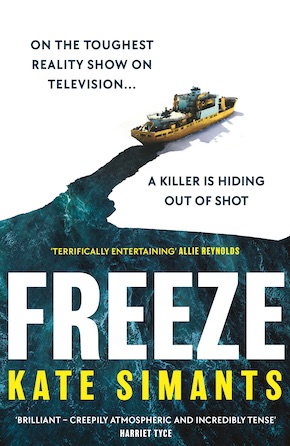
Reality TV is dead! Long live reality TV! And so it goes. Just when we think audiences have had enough, and production companies are scraping the barrel for ideas, along comes another surprise that grips the nation. This winter, it was The Traitors that got the whole nation talking – and not just about how Claudia Winkelman can quite see anything through that fringe. Frozen Out is the new, competitive reality format at the spine of Freeze, Kate Simants’ clever murder mystery: Eight leaders, seven Arctic challenges, one ship, one £100k winner! Bring it on! Think I’m a Celebrity meets The Apprentice – on ice.
The high-fliers are chosen from all walks of life and include needy social media influencer (and Tori’s ex-boyfriend) Wolf; young head teacher Nish; celebrated businesswoman and city investor Helen; community leader John; charity worker Gaia; and former England rugby captain Marco. The format is the brainchild of celebrity TV presenter Tori Matsuka, and it’s the first show her newly formed production company, Tori Tells Stories, is making for one of the big networks. Her fiancé and business partner Will is organising the logistics, while she focuses on the creative.
Tori convinces her down-in-the-dumps best friend Dee to come on board. Dee is one of the best documentary directors in the business, her speciality being undercover reportage, but her last gig wiped her out mentally and physically. She reluctantly agrees, in order to alleviate her mysteriously mounting debts. Tori is unable to figure out Dee’s personal problems other than that they involve some bloke named Leo who no longer appears to be in her life. But in any case Tori now has a secret of her own to focus on.
Assisting Tori and Dee is Annabel, an inexperienced but enthusiastic (and somewhat nosy) runner/assistant camerawoman. Completing the production team is Craig Nduka, an Arctic guide and medic. A vocal eco-warrior, he’s also organised the various outdoor tasks the contestants will embark on, including an activity involving huskies. Running the ship is laconic Finnish captain Eino and his two-person crew Ulla and Stefan.
With female friendship, toxic masculinity, eco responsibility, obsession, celebrity, secrets, lies and bodies piling up, this is a vividly intricate, at times blackly comic, character-led drama.”
As the ship sets sail it becomes apparent that Will, who has remained in London, has substantially cut the budget. Tori, Dee and Annabel have to film the show on a small, claustrophobic, barely fit-for-purpose boat as tensions between the contestants rise. Implacable weather adds to the perilous journey, as battles of the ego play out in front of and behind the camera.
The day after Tori nearly falls off the boat, one of the contestants is found dead in their cabin. Was it a heart attack? Food poisoning? Gross negligence? Or murder? As suspicions rise and fingers are pointed, an ice storm engulfs them, and Will’s cost-cutting measures leave them stranded on the ice.
With female friendship, toxic masculinity, eco responsibility, obsession, celebrity, secrets, lies and bodies piling up, this is a vividly intricate, at times blackly comic, character-led drama. Propulsive and engaging, the characters come to life and the setting is so richly drawn, you feel you are right on the boat.
Dee and Tori are such cleverly drawn and engaging characters, they would surely thrive on screen – and it’s to be hoped a TV adaptation is in the pipeline. A combination of reality TV meets Agatha Christie could be exactly what we didn’t know we wanted.
—
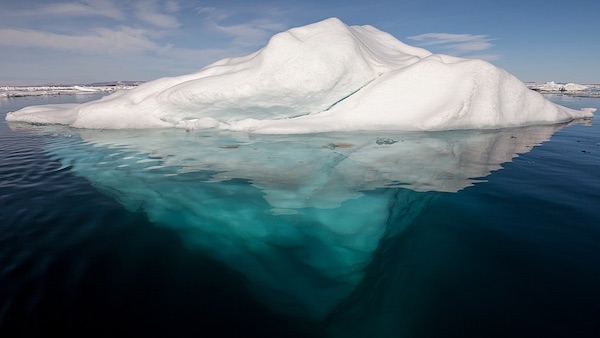
Farhana: You have a background in investigative and undercover documentaries for TV. How have those experiences influenced your fiction writing?
Kate: That kind of work certainly gave me a lot of training in research – and you still need a lot of research in writing fiction! I worked a lot alongside the police on shows like Crimewatch UK, so that kind of immersive understanding of the culture of a police force really helped when it came to writing. One of the main characters in Freeze, Dee, has a background in undercover filming, which I was only able to write about authentically because I’d done it myself.
When you were writing Freeze, did you structure it as you would like to see it play out on screen?
To an extent: the TV show that is being made in the book, Frozen Out, is definitely structured along the lines of an actual reality show. So it hits the beats of introducing the characters, the group scenes (like the meet-and-greet at the start), the challenges they undertake, the voting. But I wanted to let the reader go behind the scenes as much as possible as well – I’d always been fascinated by the way people on set would change the moment the director shouted ‘cut’! What you get in Freeze is a view of a show from behind the camera – though admittedly it’s a show that goes more than a little bit wrong.
How did your idea for Freeze come about and how long did it take you to write it?
It took longer than it needed to! Lockdown, other work, and a major false start of a novel slowed me down this time. The idea really came about after that false start: I hadn’t tried a locked-room mystery before and I already knew I wanted to use my TV experience, so it kind of went from there.
Why did you want to set it in the Arctic?
Partly because it’s such an incredibly hostile environment, and it gives an automatic sense of menace. There’s a line in Freeze in which Craig, the Arctic guide, tells the contestants: “Make no mistake – the Arctic wants you dead.” That’s a direct quote from one of the experts I consulted about it when I was in the research phase – hearing that made me certain I’d chosen the perfect location.
The creaky old Skidbladnir isn’t anyone’s idea of a cruise ship – or even an icebreaker. Why this particular boat?
It’s a disaster waiting to happen! I’d spent a long time living on boats so I’m quite familiar with how most working vessels are nothing like the opulent cruise ships you’d actually choose to spend time on. Actually the initial plan was for the Skidbladnir to be an icebreaker, but there were two issues – firstly I wanted the crew to be tiny – everyone in a locked-room (or more accurately, a ‘closed-circle’) mystery is a suspect, and the bigger crew needed for an icebreaker would have made it more complicated. Secondly, an icebreaker is a much safer, sturdier vessel when winter closes in, where I needed to put my characters in maximum danger. Downgrading the boat to an explorer vessel solved both of those problems, and tied in nicely with the corner-cutting that characterises the show.
Dee, the undercover journalist and now reality TV director, is an appealingly complicated character. Tell us about how you shaped her, and if your own work in documentaries fed into her personality and behaviour.
When I worked undercover, I would often go long periods of time essentially ‘in character’ – so I’d be posing as a worker in whatever industry, etc. I was investigating, but usually living away from home in order to do that. Invariably I made a few superficial friendships with the people I worked alongside. I kept thinking of how badly wrong that could go for someone hell-bent on getting the scoop – and that’s where Dee comes from.
I think most people – TV presenters or otherwise – know about that disconnect between your private and public faces, so I just played on that as much as possible.”
Tori is another larger-than-life character with a phenomenal ability to maintain a professional face at all times. How did you ensure readers would warm to her?
All the TV presenters I ever worked with had an on-screen persona that was different, to a lesser or greater extent, than their true self. This always seemed especially true of the women – and I definitely knew some who would deliberately tone down their incisive intelligence in order not to seem uppity or conceited or any of those other words we use to keep clever women down! But I also think most people – TV presenters or otherwise – know about that disconnect between your private and public faces, so I just played on that as much as possible, while trying to show her as much less confident in private than she appeared to be. It resonated with me, so I’m hoping it resonates with readers.
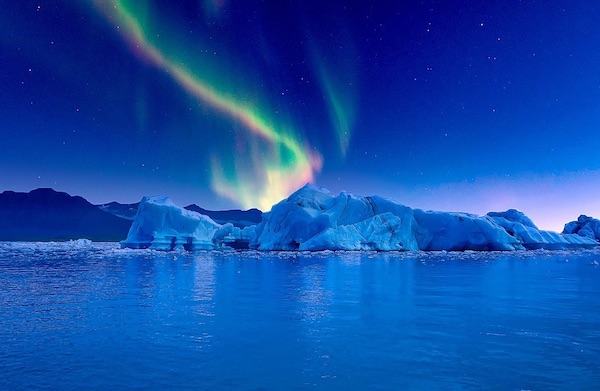
Which characters did you particularly enjoy writing and developing?
I particularly loved Wolf. I mean, he’s awful, but he’s got this intense vulnerability right at his core that I really ended up caring about. He’s another victim of that pressure to form and adhere to a screen persona – he’s trapped by this image of who he thinks he has to be, and it’s actually really sad!
Are all reality shows glorified popularity contests? Which do you enjoy, and how do you see reality TV evolving?
Though it obviously came out after I’d finished Freeze, I absolutely love The Traitors. The way the contestants just instantly turn on each other after being so friendly, and the god-level manipulation going on – it’s just deliciously awful. That one, especially, was a popularity contest in so many ways – often it was the contestants who were quiet, or less charismatic, who went early. And in reality, I think Frozen Out should see the most convincing and charismatic person win – leadership is so much about personality, the kind of person that others want to be led by.
How much research was involved – and did you carry out recces in Greenland and on ships?
I would have loved to have gone to Greenland, but this was very much researched from home. There were three main elements of the research – the boats, the location, and the TV stuff. The first and last things were areas I already knew a lot about, but the location was something I knew nothing about. My days as a journalist have made me a very thorough researcher though, so I took care to speak to local experts and read a huge amount before getting started.
Freeze reminded me of two favourite Agatha Christies: And Then There Were None spliced with Murder on the Orient Express. Both locked-room thrillers, both with surprising outcomes. Tell us about your own favourites in the genre.
Yes, I did reread some Christie too! I’ve loved the Lucy Foley books recently – I love the way she evokes the location so vividly and makes it immersive. But honestly, one of the best and most innovative in this genre is Dead Mile by Jo Furniss, which features a menopausal off-duty police sergeant faced with a murder on a gridlocked stretch of motorway. Not out until next year but keep an eye out – it is fantastically unique!
The novel has two central leads – Dee and Tori – but halfway through it becomes on an ensemble-piece thriller after one of the passengers dies and everyone is a suspect. What is your process for mapping out plot and character arcs?
It changes with every book actually, though this one, because of the format, took more mapping out than usual. I’m quite a planner – I find that if I don’t know where the story is going, it drifts and loses momentum, which is obviously no good at all for a thriller! I think about where the story needs to end up, plot the rough waymarks that I need to get to on the journey to the showdown, but then do more detailed plotting a few chapters in advance as I go. In terms of character development it’s actually fairly similar – I work out what the character needs to achieve by the end in order for them to have learned/grown in some tangible way, and then work backwards to build their journey to that point. All the fun comes in when you start putting in the roadblocks to keep them from their goals too soon – it makes the payoff that much more satisfying.
There’s a delightful contrast between the ship’s taciturn Finnish crew and the boisterous British wannabe celebrity passengers. What do you suppose the Finns get up to when they’re off duty?
Yeah they’re quite serious aren’t they? I watched quite a few documentaries and YouTube videos about life on icebreakers and I was really taken with the demeanour and sense of humour of the Finnish crews compared to our own. Maybe it was more about the austere environment on the ships but I’d be surprised if they broke out the karaoke machine of an evening!
I’ve always liked the idea of visiting the Arctic, but writing Freeze has very much made it a real ambition.”
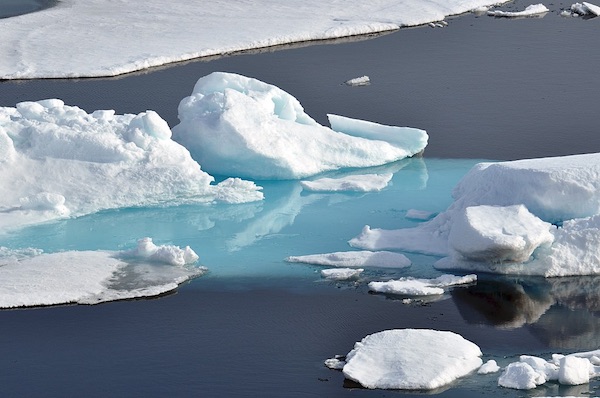
Craig is an eco-defender/medic hired to lead the challenges, and it’s through him the reader learns about the impact of climate change and tourism on the Arctic. Why was it important to have these issues raised in Freeze?
It felt like such a massive elephant in the room, to set an entire book in one of the most vulnerable places on the planet without making reference to climate change. I didn’t want the book to be preachy – people ordinarily read thrillers for escapism – but failing to mention the ecological issues would have been irresponsible. Also, the experts I spoke to who did the kind of job Craig does were so acutely conscious of the fragile state of the Arctic that it was actually just accurate to represent that concern through him.
There’s a scene involving huskies, and their wellbeing is of great concern to one of the contestants in particular. Is animal welfare another issue you’re keen address?
Entirely honestly, that contestant’s response to the huskies was more just for her development as a character. I do love animals, and I don’t eat them, but it wasn’t high on my list of points to get across in the book. That said, I did enjoy finding out about the relationship between the local people and the dogs – it’s such a symbiotic thing when people depend on these creatures for so much. I’ve always liked the idea of visiting the Arctic, but writing Freeze has very much made it a real ambition.
What have been your cultural highlights, including travel, in the past year?
I’m a big fan of the theatre, and go as often as I can, especially to Bristol’s Old Vic. I saw The Meaning of Zong there a little while back which is a definite must-see, but Drive Your Plow Over the Bones of the Dead a couple of months ago just blew me away. My family and I explored the Netherlands by train last summer – my daughter’s afraid of flying so we look for places to go that don’t involve planes. Visiting the Rijksmuseum there and exploring Haarlem and Leiden were particular highlights. I’ve been trying to work out a fly-free trip to Norway this year but it’s proving trickier!
Are there any psychological thrillers, new or classic, you’d particularly recommend?
My all-time favourite is Gillian Flynn’s Sharp Objects – it’s the book I return to most. Just blistering characterisation and so darkly incisive, I find something new to love every time I read it. I’m enjoying Gillian McAllister’s Wrong Place, Wrong Time at the moment – what a concept!
—
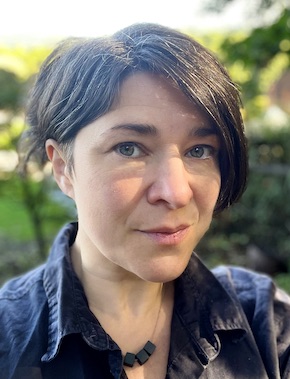
Kate Simants spent several years as an investigative undercover journalist for Channel 4 and the BBC. She lives near Bristol with her family. She was shortlisted for a CWA Debut Dagger for her first novel Lock Me In and won the UEA Literary Festival scholarship to study for an MA in Crime Fiction, graduating with distinction. Her second novel, A Ruined Girl, won the Bath Novel Award. Freeze is published in hardback, eBook and audio download by Viper.
Read more
katesimants.co.uk
@katesboat
@ViperBooks
Farhana Gani is a freelance copywriter and book scout for film and TV, and a founding editor of Bookanista.
@farhanagani11
@bookanista
wearebookanista
bookanista.com/author/farhana

